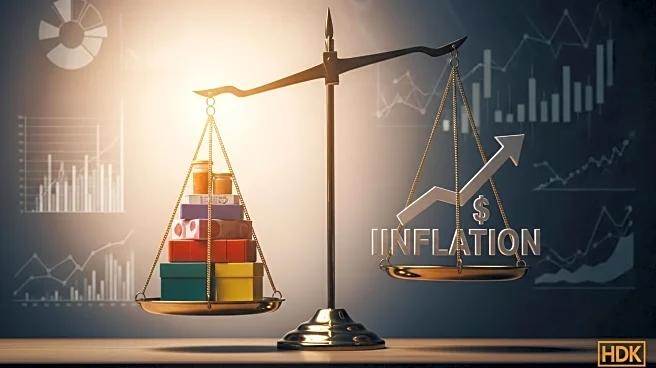What is the story about?
What's Happening?
Inflation in the U.S. increased in August, with consumer prices rising by 2.9% compared to the previous year. Tariffs imposed by President Trump are identified as a major contributor to the rising costs of goods such as clothing and household furniture. The consumer price index showed a significant increase in core commodities, excluding food and energy. Economists suggest that tariffs are impacting prices in categories like apparel and recreational goods, with apparel prices showing a notable increase.
Why It's Important?
The impact of tariffs on inflation highlights the broader economic consequences of trade policies. Rising prices for consumer goods can affect household budgets and spending patterns, potentially slowing economic growth. The legal challenges to Trump's tariff policies could have implications for future trade relations and economic stability. The increase in grocery prices and services inflation further complicates the economic outlook, as consumers face higher costs in multiple areas.
What's Next?
The Supreme Court is set to review the legality of Trump's tariff policies in November, which could lead to changes in trade practices. Economists predict continued inflationary pressures, particularly in goods affected by tariffs. The Federal Reserve's upcoming interest rate decision will be crucial in managing inflation and economic growth. The outcome of the legal challenges and economic policies will shape the future of U.S. trade and consumer prices.















